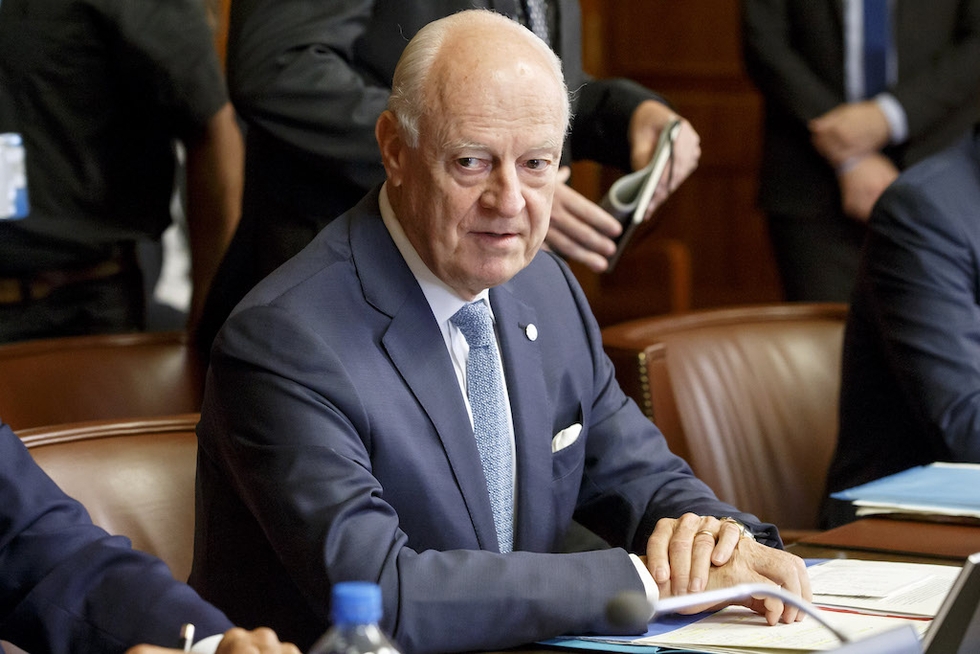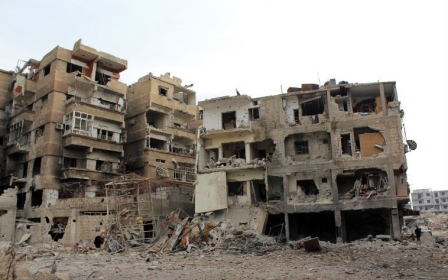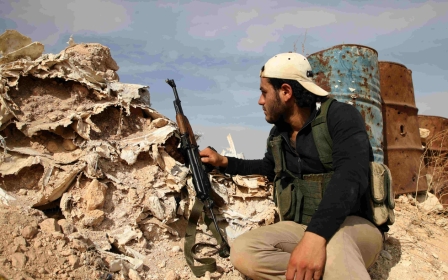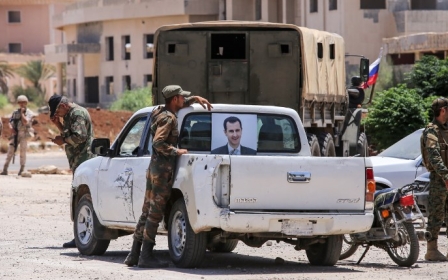UN Syria envoy to step down next month

The United Nations envoy for Syria has announced that he will step down at the end of November after more than four years in the key post, setting back UN efforts to end the seven-year war in Syria.
"I will myself be moving on as of the last week of November," Staffan de Mistura told the UN Security Council during a meeting on the crisis in Syria on Wednesday.
The Italian-Swedish diplomat, who became the UN's third Syria envoy in July 2014, said he was leaving for "purely personal reasons" and had discussed his plans to leave with UN Secretary-General Antonio Guterres.
"I am not laying down the charge until the last hour of the last day of my mandate," he said.
De Mistura will be traveling to Damascus next week to push for the creation of a committee to agree on a post-war constitution for Syria.
Syria is resisting the UN-led effort to set up the constitutional committee that will be comprised of government officials, opposition members and representatives of civil society.
De Mistura was appointed UN envoy for Syria in July 2014, after veteran Algerian diplomat Lakhdar Brahimi resigned following the failure of peace talks in Geneva.
During his tenure, de Mistura organised nine rounds of indirect negotiations in Geneva and Vienna between the warring parties, without results.
The announcement was met with some sardonic comments on social media, with some Syrian activists criticising him as being ineffective:
Among the names being floated as a possible successor to de Mistura are the UN Envoy for Iraq Jan Kubic and the UN Middle East Peace Coordinator Nickolay Mladenov, the AFP news agency reported, citing UN diplomats.
Years of failed peace efforts
De Mistura is the longest serving of three UN mediators during the more-than-seven-year conflict.
Brahimi spent two years in the position, stepping in after former UN chief Kofi Annan quit just six months into the role. Both resigned in frustration over a global stalemate on how to end the war.
Annan visited Damascus several times to meet President Bashar al-Assad and put forward a six-point peace plan backed by the Security Council, providing for a reciprocal ceasefire from 12 April 2012, however it never took hold.
Annan resigned on 2 August, after months of fruitless efforts, saying he has done his "best" and complaining the plan did not receive the support it deserved from major powers.
"The increasing militarisation on the ground and the lack of unanimity in the Security Council fundamentally changed my role," he said.
"I did not receive all the support that the cause deserved," he added, implicitly referring to Russian and Chinese vetoes of three Security Council resolutions on Syria since the start of the crisis.
Since 2011 Russia has used its veto 12 times to protect its Syrian ally from Western pressure.
Brahimi took over from Annan in August 2012.
In January and February 2014, he organised the first face-to-face negotiations between the Syrian government and opposition in Geneva, under the leadership of the United States and Russia.
However, he came up against the Syrian government's refusal to discuss the fate of Assad.
On 13 May, after less than two years in the role, Brahimi also resigned.
He said he was "very sad... [to] leave Syria behind in such a bad state" and that the situation in Syria is "very difficult, but not desperate".
More than 360,000 people have died in the war in Syria, which began in March 2011 as an uprising against Assad, but has since morphed into a complex war with myriad armed groups, some of which have foreign backing.
New MEE newsletter: Jerusalem Dispatch
Sign up to get the latest insights and analysis on Israel-Palestine, alongside Turkey Unpacked and other MEE newsletters
Middle East Eye delivers independent and unrivalled coverage and analysis of the Middle East, North Africa and beyond. To learn more about republishing this content and the associated fees, please fill out this form. More about MEE can be found here.




